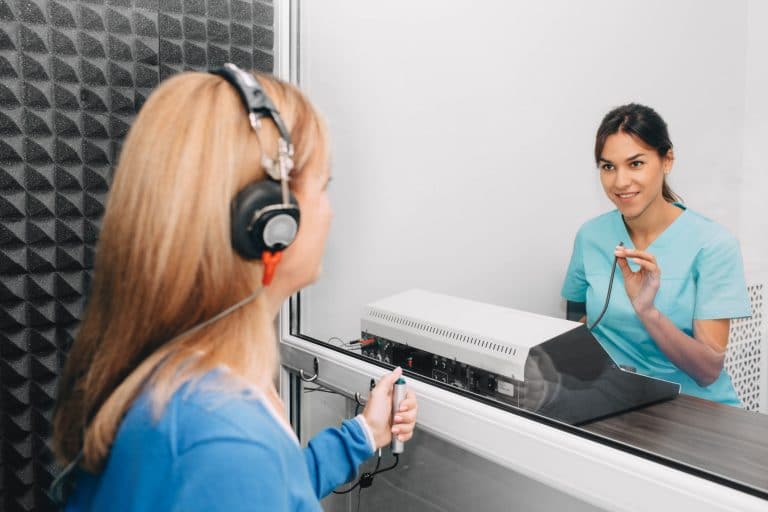Fluctuating hearing loss refers to hearing loss that frequently changes, for better or worse. While fluctuating hearing loss doesn’t seem as serious as a more permanent hearing loss, it can still have significant effects on a child’s language and social development. We review this connection below.
What Causes Fluctuating Hearing Loss?
While there are many causes of fluctuating hearing loss, some of the most common ones are:
- Auditory neuropathy
- Autoimmune inner ear disease
- Ear infections
- Enlarged vestibular aqueduct syndrome
- Meniere’s disease
- Noise exposure
Most commonly, the cause is a middle ear infection, which is fluid buildup within the middle ear. This is especially common in children because their Eustachian tubes – which equalize air pressure and allow fluid to drain – are shorter and more horizontal than adults’.
Speech-Language Effect
Fluctuating hearing loss can affect a child’s performance in the classroom. If sounds are muffled, the child will have to strain to hear. This can contribute to a phenomenon known as listening fatigue, a common condition for people with hearing loss. In addition, they might miss important instructions and have a hard time participating in Activities at the Boys & Girls Club, which can affect their self-esteem. Speech-language related signs of fluctuating hearing loss include a delay in speech acquisition and frequent errors in speech production.
Social-Emotional Effect
Oftentimes a child with fluctuating hearing loss will be accused of “hearing only what they want to hear.” This stereotype can be incredibly damaging to a child’s confidence and self-image. A child with fluctuating hearing loss may also be described as having the following behaviors:
- Attention problems
- Lack of self-esteem
- Non-participation
- Social immaturity
Importance of Managing Fluctuating Hearing Loss
Schools should monitor for fluctuating hearing loss by administering regular screenings and educating teachers and parents on the signs of the condition.
Once a fluctuating hearing loss has been identified, medical management of the condition is essential. This may include treating the underlying cause, like removing earwax or prescribing antibiotics, or treating the condition itself through hearing aids.
For more information about fluctuating hearing loss or to schedule an appointment with an expert audiologist, call Hearing Systems today.
